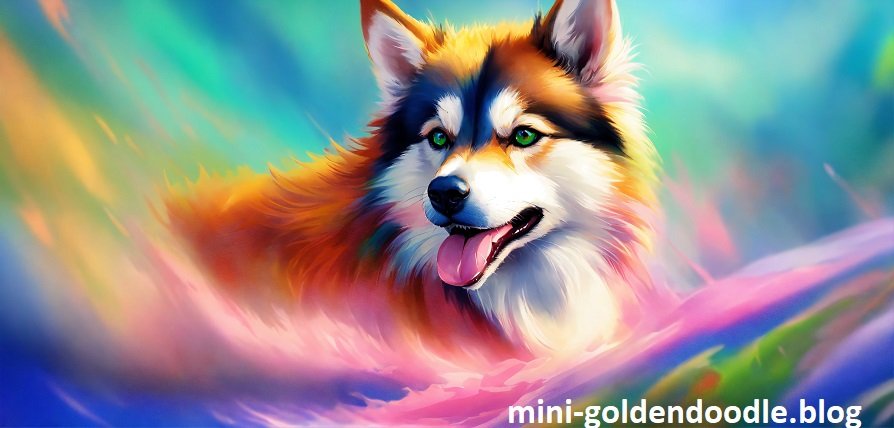Introduction
A Malamute puppy is a thrilling and fulfilling addition to any home. The power, intelligence, and loyalty of these magnificent dogs make them excellent companions for the appropriate owner. But in order to guarantee that your Malamute puppy grows up to be a well-mannered adult, you must raise them with great thought and planning. Everything you need to know about Malamute puppies will be covered in this thorough guide, from training and grooming to picking the best one for your lifestyle.
History and Origins of the Malamute Breed
The history of the Alaskan Malamute is intricately linked to the state’s Arctic areas. These dogs, who descended from the ancient Inuit people, were painstakingly raised for extraordinary strength and endurance—qualities that are essential for hauling huge sleds over long distances in subfreezing weather. They became cherished household pets in addition to being indispensable working dogs because of their amiable and loving nature with humans.
Characteristics and Temperament
The muscular body, thick double coat, erect ears, and plumed tail that curls over the back of a malamute are immediately distinguishable characteristics. In addition to their spectacular beauty, they are well-known for being amiable and loving, which makes them great family pets. They do, however, also have a strong prey drive and an independent streak, which emphasizes how crucial early socialization and constant training are to help them use their energy constructively.
Choosing the Right Malamute Puppy
When choosing a Malamute puppy, temperament, medical history, and breeder reputation must all be carefully taken into account. Good socialization is demonstrated by alertness, curiosity, and eagerness to engage with humans and other dogs in a well-bred puppy. It’s critical to conduct in-depth background checks on breeders to make sure they value the wellbeing and health of their pets through ethical breeding methods.
Preparing Your Home for a Malamute Puppy
Creating a secure and exciting environment that promotes a Malamute puppy’s growth and development is part of preparing your house for their arrival. Eliminate any possible risks, such as poisonous plants and small items that could be ingested. A nice bed or box should be provided, as well as a variety of toys to keep them occupied during the night.
Feeding and Nutrition
A Malamute puppy’s nutritional needs must be carefully attended to in order to maintain its quick growth and development. Select a premium puppy food that is made especially for large breeds, making sure that the proper ratios of proteins, fats, carbs, vitamins, and minerals are included. To avoid overeating and stomach problems,
Exercise Requirements
Due to their energetic nature and history of working in harsh Arctic circumstances, malamutes require daily exercise to stay in good physical and mental health. Take them on frequent walks, play dates, and activities that encourage their innate tendencies, such agility or retrieving drills. To encourage good behavior and stop boredom-induced mischief,
Training Your Malamute Puppy
For Malamute puppies to develop excellent behavior and obedience, early instruction is essential. As soon as you get them home, start with basic obedience training. Use positive reinforcement methods like praise, treats, and constant repetition. Prioritize imparting fundamental skills such as sit, stay, come, and leash etiquette, and as they grow older, progressively go on to more complex instructions.
Grooming Needs
Malamutes need frequent brushing to keep their thick double coat looking and feeling nice. In order to prevent matting and remove loose fur, brush their coat at least once a week. During shedding seasons, brushing frequency should be increased to handle the breed’s tendency toward high shedding. Their undercoat loses more than their outside coat, so use an undercoat rake or slicker brush to get through their thick fur and reach the undercoat.
Health Care and Vaccinations
Maintaining the health and wellbeing of your Malamute puppy requires routine veterinary treatment. Plan on receiving your pet’s prescribed preventative care, immunizations, and routine checkups to guard against common illnesses and parasites. Keep a close eye on their growth and development, and talk to your veterinarian right once if you see any changes in their behavior. Recognize that some health conditions unique to your breed,
Socialization and Interaction with Other Pets
For Malamute puppies to form wholesome bonds with both people and other animals, socialization is essential. From an early age, expose them to a variety of situations, people, and settings, making sure that these interactions are constructive and fulfilling. Gradually expose them to various dogs, cats, and domestic animals while keeping an eye on their behavior and taking action to stop any aggressive or fearful behaviors.
Conclusion
If you are aware of their special requirements and traits, adopting a Malamute puppy can be a happy and rewarding experience. You now have the knowledge to grow a happy and well-adjusted Malamute companion, from choosing the appropriate puppy to training, grooming, and medical attention. Enjoy the years of love and devotion your Malamute puppy will offer to your family as you embrace the bonding process with them.
FAQ
Are Malamute puppies good with children?
Yes, when raised appropriately and under close supervision, malamutes get along well with kids. They are renowned for being kind and amiable people.
How much exercise does a Malamute puppy need?
For their health and to avoid boredom, malamute puppies need to exercise for at least one to two hours every day.

